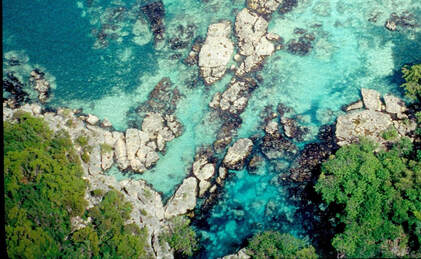 The data rescue intern: Siobhan Schenk The Long-term Rocky Tidal Community Data collected in Discovery Bay, Jamaica by McMaster University Professor Jurek Kolasa, and his many students every year from 1989 to 2006, is unique not only in the length of study and the richness of the microinvertebrates sampled, but also by the cultural enrichment opportunities provided to students that participated in the project. 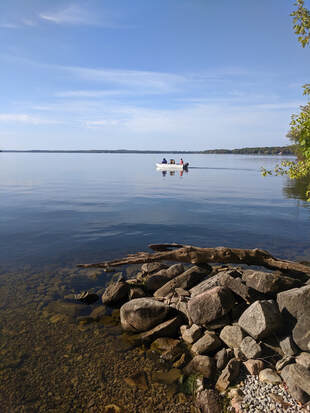 The data rescue intern: Charlotte Hagelstam-Renshaw The Kawartha Highlands Provincial Park is located in southern Ontario, Canada where visitors enjoy many outdoor activities, such as camping and canoeing. The Kawartha Highlands includes many small lakes and wetlands and is a short distance from major population centres such as Toronto Ontario and as a result is a popular destination in the summer. As such, it is important and useful to monitor both the health of its water bodies and understand potential effects of human activity. 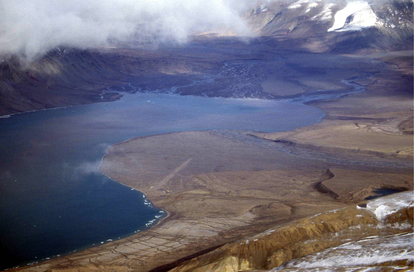 The data rescue intern: Fiel Dimayacyac My data rescue internship was centered on climate data from Parks Canada from Nunavut national parks under the guidance of researcher Florence Lapierre Poulin. The data were collected from four different weather stations: Tanquary Fjord, Lake Hazen, Ward Hunt, and Conger Island from 1989 until 2019. Data were downloaded annually from the weather station sensors at each location and were recently amalgamated into a single database by Florence. Many researchers wish to use the data, but the state of the database was problematic at the time for multiple reasons. The data collection methods were inconsistent between years as sensors where replaced or upgraded over the years and as a result different headers for the same variable existed, or certain time spans were missing headers, or there were inconsistencies with units of measurement as well as of time. In some cases values were in error or unrealistic for various reasons (sensor error). 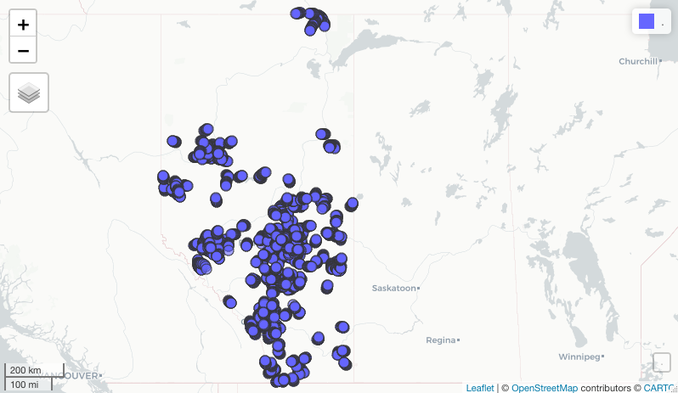 Fig. 1: Map of the sites that are in the database for the Alberta NOS. The NOS specifies locations (transect) in which, almost every year, volunteers go and record if they have heard or seen owls on a transect. Each point on the map is a “stop” on a route (transect). Fig. 1: Map of the sites that are in the database for the Alberta NOS. The NOS specifies locations (transect) in which, almost every year, volunteers go and record if they have heard or seen owls on a transect. Each point on the map is a “stop” on a route (transect). The data rescue intern: Marc Olivier Beausoleil The Canadian Nocturnal Owl Survey (NOS) aims to better understand the population trends of nocturnal owls, but also provide insights in owls’ habitat use and how this information can improve land management and conservation practices. The NOS has produced an incredible amount of data from volunteers across Canada for over 20 years. The goal of this internship was to finalize the data entry from two locations: Alberta and Nova Scotia (more specifically, Cape Breton). A previous LDP intern (Jacob Hubner) started the process of data entry, especially for Alberta. I build upon Jacob’s work by entering the data from Cape Breton and finalizing the data entry for Alberta. 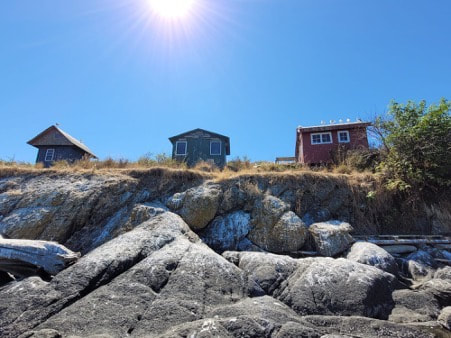 Figure 1: Mandarte Island cabins. Photo: Janaina Serran Figure 1: Mandarte Island cabins. Photo: Janaina Serran The data rescue intern: Janaina Serrano Long-term time series of observations from focal populations are among the most valuable data ecologists collect, and their preservation is central to understanding historic and future changes in demography and dynamics of wild species. Since 1975, Professor Peter Arcese and his colleagues have monitored a population of Song Sparrows (Melospiza melodia) on Mandarte Island in the Haro Strait near Vancouver Island, British Columbia. The data are variously collected by Frank S. Tompa 1960-63, James N.M. Smith 1973-81, Peter Arcese 1981 - 87, Wesley Hochachka 1988-89, Alice Cassidy 1990, and again by Peter Arcese and various students, post-docs, and employees 1991-present. Through their intensive monitoring, Arcese and his team have collected more than 40 years of demographic, life-history, and genetics/pedigree data, as well as detailed information on the location of individual birds from nest departure to death. These data have been used to link demography and evolutionary theory, and to address a variety of fundamental questions. Corresponding climatic data are already available online, providing ample opportunity for future analyses. In addition to the long-term monitoring of Mandarte Island, the researchers have also collected similar short-term data from more than a dozen other islands. The data rescue intern:
Tanya Strydom The Piping Plover (PIPL) project focuses on surveying and recording data related to the incredibly cute and sadly endangered Piping Plover. These little birds are summer visitors to the coastal regions of the Atlantic seaboard where they breed along the shoreline, nesting above the high water mark in soft sandy areas with sparse vegetation. Piping plovers are sensitive to beach disturbances and one of the big aims of the PIPL project is to monitor not only the population status of the birds but also the effect of different disturbances on the population. This is achieved through beach surveys. The data rescue intern:
Ashton Sies Haida Gwaii is a region of extreme cultural significance and biological importance. Located off the northwest border of mainland British Columbia, it is the home of the Haida people and their ancestors, who currently inhabit the archipelago, and have since time immemorial. More on the history of the Haida Nation, as well as their current governance, is available here. In the south of Haida Gwaii, the Gwaii Haanas National Park Reserve, Marine Conservation Area Reserve, and Haida Heritage Site is a protected area and pristine coastal ecosystem. The Laskeek Bay Conservation Society (LBCS) was founded over 30 years ago, with several goals that centred upon understanding and managing ecosystems in Haida Gwaii and Gwaii Haanas, specifically the Laskeek Bay area. LBCS’s current research and monitoring efforts are diverse in their scope, ranging from the tracking of seabird populations, to the study of introduced species (e.g., deer, raccoons, and squirrels), to the ecological surveillance of rare plants and lichens. More information on their research is available here, with finer details on each project available here. |
Archives
October 2023
Categories |

 RSS Feed
RSS Feed